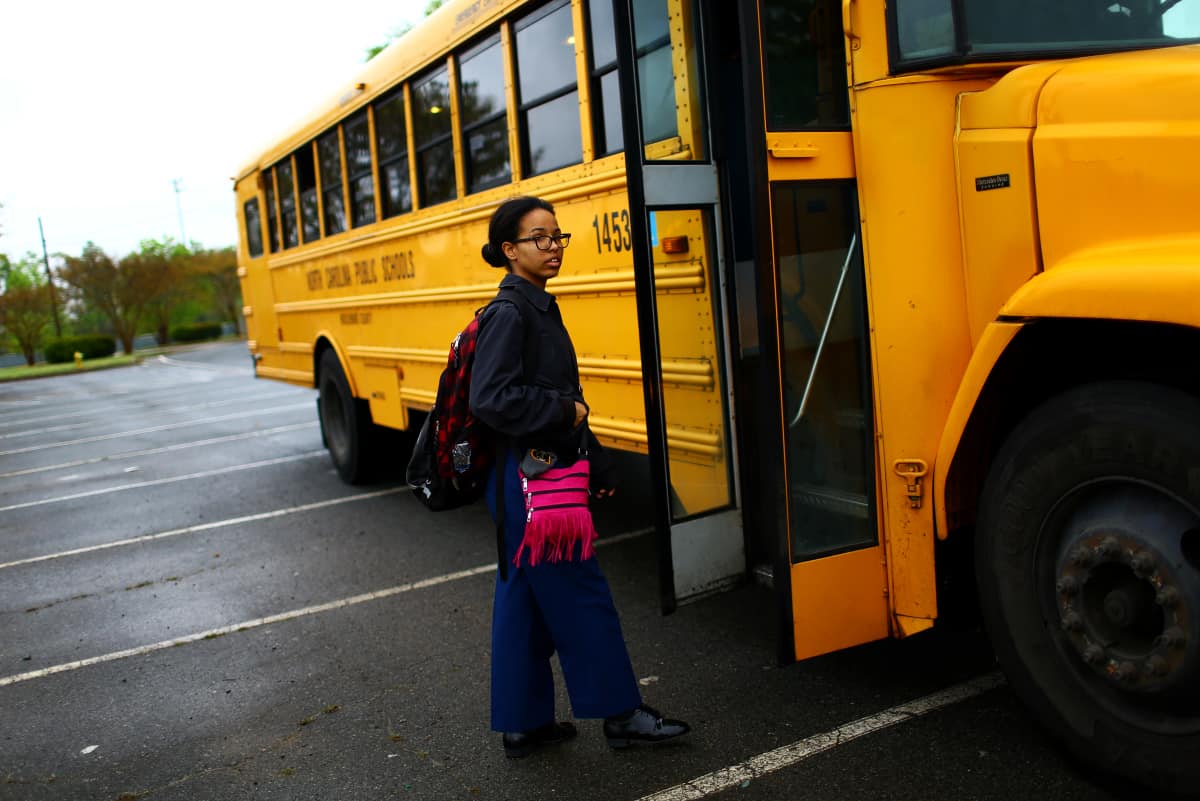If you haven’t done so already, I hope you will take the time to read the story and watch the videos that appeared a week ago on EdNC.org, marking the 45th anniversary of the U.S. Supreme Court ruling in the landmark case of Swann v. Charlotte-Mecklenburg Board of Education. Our Charlotte correspondent Adam Rhew delivered a highly readable account of the case’s history and aftermath, and our Raleigh-based reporter Alex Granados produced three videos from a recent discussion at the UNC School of Law.
The case had national significance. The way Charlotte responded had state as well as local significance. And it contains a lesson for North Carolina today as the state deals with the repercussions from House Bill 2.
In upholding federal District Judge James McMillan’s order to use busing as a tool to desegregate the local public schools, the Supreme Court cut through Southern resistance and go-slow minimalism after the 1954 Brown ruling that held segregated schools violated the Constitution. In a relatively short period, the South had the most desegregated schools in the nation.
In Charlotte itself, after some initial citizen resistance, the city’s civic, business, and black-community leadership decided to collaborate in an effort to implement the busing order and avoid educational disruption. Years ago, I got insight into the behind-the-scenes collaboration from David Gillespie, my colleague at The News & Observer in the 1980s. Gillespie, who has since died, served as editorial-page editor at The Charlotte Observer during the Swann episode. At the same time he was writing editorials, he served on a local bi-racial committee helping to prepare the county for busing.
In his presentation at UNC-Chapel Hill, former law dean Jack Boger observed, “Charlotte actually realized it could take advantage of what it was doing – and after all the resistance, it flips and says, ‘We’re the city that makes it work. Come do business here.’”
Indeed, had the city-county not implemented the busing order so nimbly, it is difficult to imagine Charlotte as the national financial center it has become. In its schools and its civic life generally, Charlotte also benefited from visionary, deeply-rooted corporate leadership. Subsequently, the state legislature enacted cross-state banking that allowed Charlotte’s big banks to go on a sustained growth spurt.
A parallel process played out across the South. Even though it took the civil rights movement to demand social and legal change, the Congress to enact laws, and federal courts to enforce the Constitution, the South discovered that banishing Jim Crow liberated the region to do business and widen the circle of prosperity. Atlanta became the unofficial “capital’’ of the region as it branded itself “a city too busy to hate.” Between 1980 and 2000, total jobs in the South grew by 40 percent and its population grew by 35 percent, both exceeding the national rates of growth.
In 2002, Richard Florida published his much-discussed book, The Rise of the Creative Class, in which he defined “technology, talent and tolerance’’ as the “3 T’s of economic development.” Some places found his analysis difficult to apply, but his observation that creative people “prefer places that are diverse, tolerant and open to new ideas’’ surely helps explain the robust development of the Charlotte metropolitan region as well as the Research Triangle region.
Here, then, is where the Swann case and the debate over House Bill 2 intersect.
The reaction to the North Carolina law by Pay Pal, Deutsche Bank, Bank of America, Red Hat, PepsiCo, Reddit, and more suggests that employers want to hire creative talent and serve diverse customers.
Great Britain issued a travel advisory for LGBT travelers to North Carolina.
Bruce Springsteen, Pearl Jam, and other bands have cancelled shows in North Carolina.
In today’s economy, tolerance – or at least the avoidance of intolerance – has become an economic asset.
Forty-five years ago, Charlotte-Mecklenburg, even as it acted under court order, signaled that its leadership wanted the community to grow and prosper by moving beyond old divisions. It was good business to do so. Earlier this month Gov. Pat McCrory appeared to draw from the recent history of the city where he served as mayor, as he said in a press release, “We have long-held traditions of both ensuring equality for all of our citizens and our visitors, while also respecting the privacy of everyone.”
As the debates go on over HB2 as well as over teacher pay and the public school budget, it’s a moment to reflect on the history of Swann and its role in the making of modern Charlotte. For North Carolina to grow and prosper requires attracting businesses, sustaining a world-class education system, positioning itself as a destination for visitors and for creative workers, and recruiting a diverse workforce. It is good business to do so.



